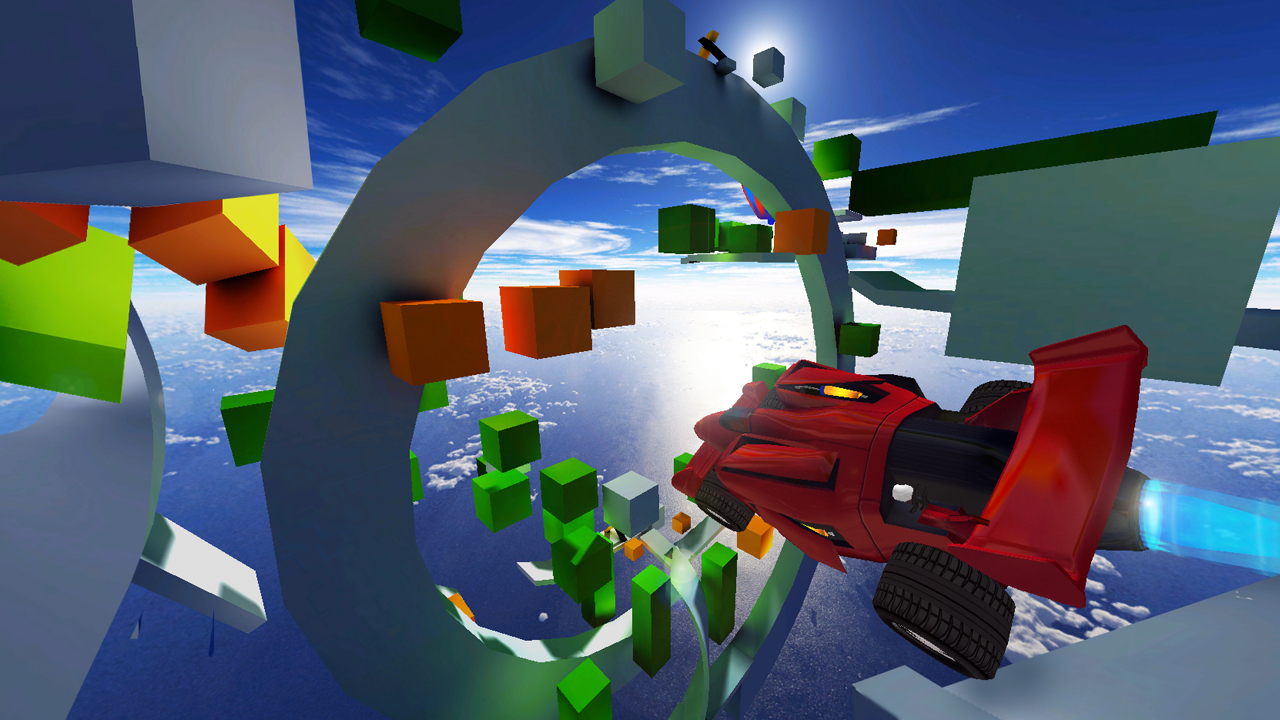GamesRadar+ Verdict
It's a promising idea, but this scrappy, uneven game doesn't work as either a racer or a platformer. Even at a penny under four pounds, it's hard to recommend.
Why you can trust GamesRadar+
It’s never a good sign when you get stuck during a tutorial. Here, the introductory text is telling us to use the left analogue stick to roll and pitch our vehicle in mid-air. ‘The car’s response improves if you activate the jet or air brake’, we’re informed. Hang on a minute, we think - the car’s more responsive if we both increase our speed and decrease it? It turns out neither is entirely correct.
After numerous attempts, we eventually stumble upon the right approach: evidently, we’re supposed to ignore the accelerator entirely and squeeze the jet trigger throughout our flight, while nudging the analogue stick ever so delicately to manoeuvre through a series of narrow rings. Five more restarts later we’ve nailed it, and we’re pretty sure we already have Jet Car Stunts pegged: it’s neither a car nor a plane, but a turbo-powered turkey.
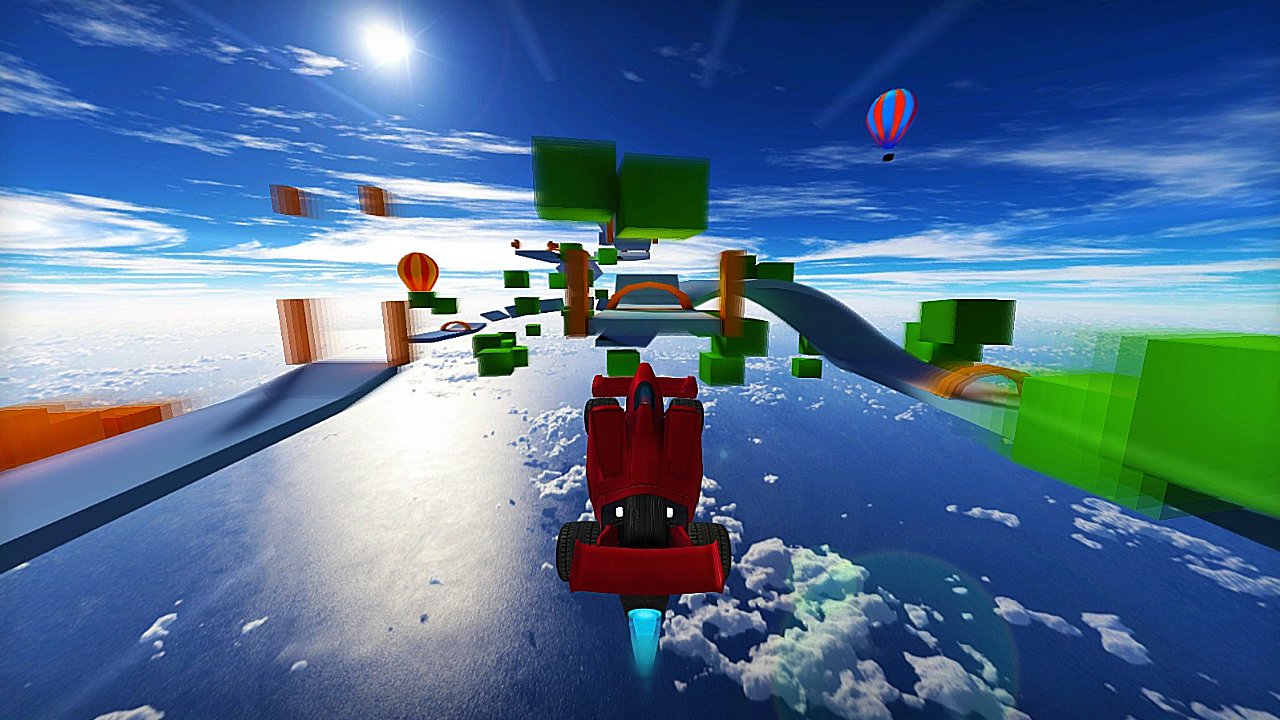
That doesn’t tell the full story, though we’re alarmed to discover that the original game was very highly thought of on its smartphone debut. But what might be acceptable on a device the size of a Dime bar doesn’t necessarily translate to a home console, and a game designed around accelerometer-based controls needs substantial adjustments if it’s to make the switch to analogue steering.
When you’re on land, it’s fine – your vehicle is a little skittish, perhaps, but you’ll acclimatise to the unusual handling soon enough. Instead, the problems begin when it’s time to take to the skies.
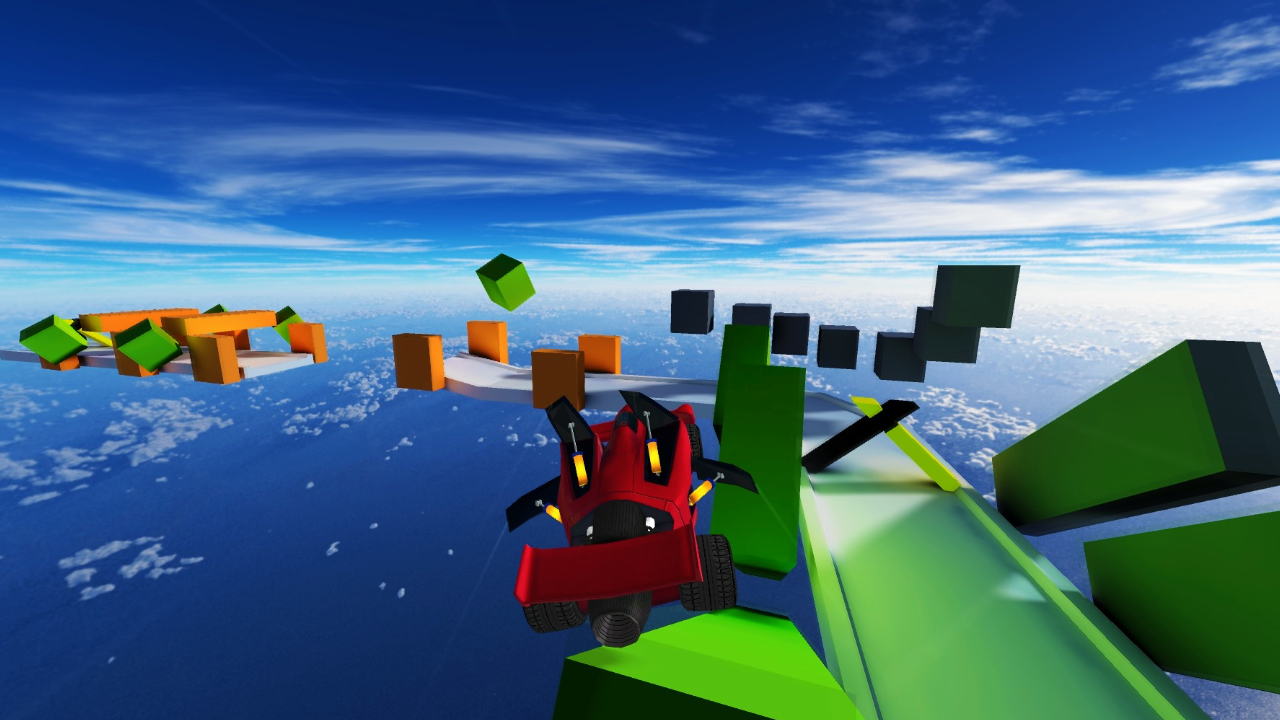
And that’s a common occurrence, because the courses here have plenty of pieces missing. The influences are immediately apparent: the Trackmania series is the clearest inspiration, but there’s a hint of Geoff Crammond classic Stunt Car Racer, too, in the abundance of loops, ramps and stomach-churning plunges.
The main point of difference is that Jet Car Stunts’ tracks resemble nothing so much as a contemporary art installation, or even the more abstract time-attack stages in Mirror’s Edge. Each one is built from simple geometric shapes, haphazardly arranged until they form a vague route from the start line to the finish. You’ll accelerate off one rectangular block and fall onto another, turn the corner and boost up a ramp, floating over towards the next checkpoint with the aid of your air-brake.
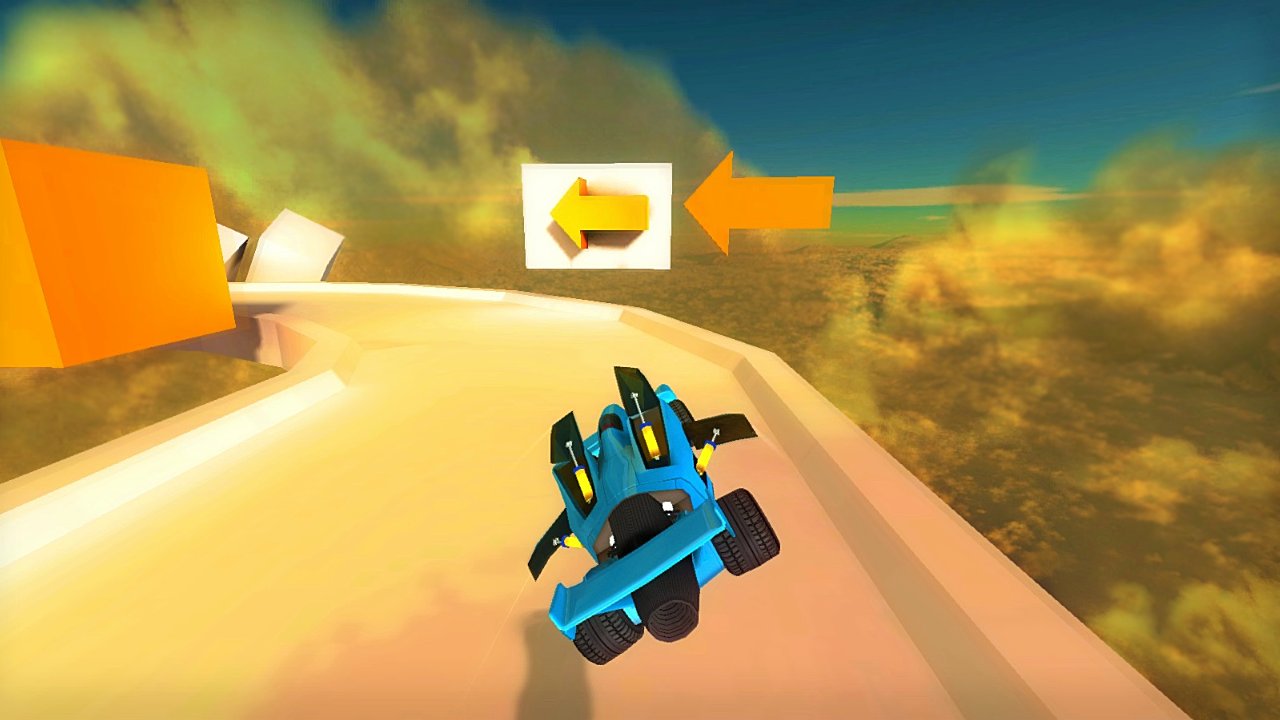
It sounds more exciting than it feels. The slightest contact with an object or any imperfect landing will send your car spinning all over the place, the camera swivelling to make any attempted recovery impossible. Visual feedback is so poor that it’s hard to tell whether you’re going to make a jump or plummet into the void. Navigating mid-air hazards is made all the more frustrating thanks to the camera being positioned in such a way that your car is always partially obscuring them. And an arbitrary limit of ten restarts per track is pointlessly punitive.
With no effort invested in improving the presentation, this is an ugly game, with some of the most pathetically feeble crashes we’ve ever seen. Time trials, which see you racing other players' ghosts or your own best run, fare a little better, and we found ourselves repeating the best courses to pursue those fiendishly tough gold medal times. By comparison, Collector mode is ludicrous, positioning stars in laughably hard-to-reach places from its very first stage.
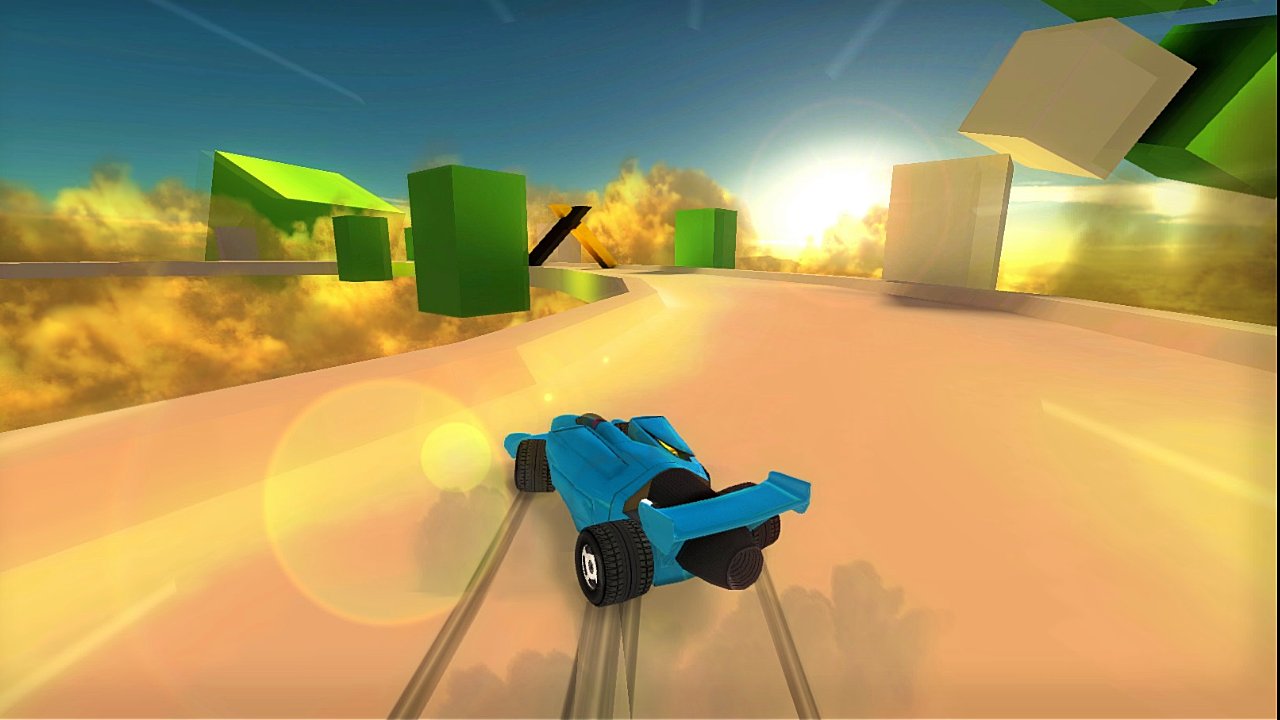
A stubborn streak within us caused us to persevere for much longer than the game really deserved, and we’re sure some players will relish tackling such an unwieldy, obtuse challenge. But Jet Car Stunts looks and plays like a game that might have turned up a few years ago on XBLIG for 69p. And we wouldn’t have thought much of it then, either.

Chris is Edge's former deputy editor, having previously spent a decade as a freelance critic. With more than 15 years' experience in print and online journalism, he has contributed features, interviews, reviews and more to the likes of PC Gamer, GamesRadar and The Guardian. He is Total Film’s resident game critic, and has a keen interest in cinema. Three (relatively) recent favourites: Hyper Light Drifter, Tetris Effect, Return Of The Obra Dinn.
